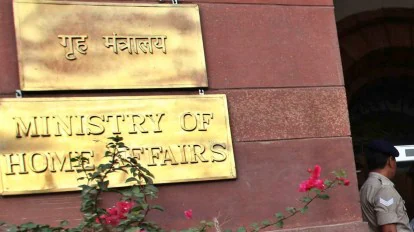Kuki-Zo Council Leaders Meet MHA Officials in New Delhi
On Monday, January 15, 2025, four representatives from the Kuki Zo Council, a newly established group in October 2024, met with key Ministry of Home Affairs (MHA) officials in New Delhi. The representatives held talks with A K Mishra, the Northeast Advisor to the Government of India, and Rajesh Kamble, Joint Director of the Intelligence Bureau (IB). The meeting was described by the Kuki Zo Council as a “courtesy call,” with no formal discussion on the ongoing crisis in Manipur.
While the meeting did not delve into the specifics of the current unrest in Manipur, it was a strategic attempt to engage with the central government and ensure that the concerns of the Kuki-Zo community were brought to the national stage. According to Henlianthang Thanglet, Chairman of the Kuki Zo Council, the primary objective of the meeting was to make it clear that the voices of the Kuki-Zo people are not being adequately heard in mainland India.
Focus on Raising the Kuki-Zo Voice
The Kuki Zo Council has grown in prominence since its formation in late 2024, representing the interests of the Kuki-Zo community in the wake of significant political and social tensions in the Manipur region. These tensions, particularly in Churachandpur and other parts of Manipur, have raised concerns about the Kuki-Zo community’s safety and political representation.
Henlianthang Thanglet expressed frustration at the lack of recognition for their grievances, particularly within the context of the ongoing crisis in Manipur. “Our main idea of coming to Delhi is that our voices are not being heard in mainland India,” Thanglet stated after the meeting. The Kuki-Zo leaders have long felt marginalized, and this meeting marks their first step toward seeking a platform for dialogue with the central government.
Despite the absence of formal discussions regarding the current crisis, the leaders’ visit to Delhi is seen as a gesture of goodwill and an opportunity to open up a direct line of communication with the central authorities. By engaging with Mishra and Kamble, the Kuki Zo Council hopes to lay the groundwork for more substantive talks in the future.
A Symbolic but Crucial Dialogue
Although there were no specific outcomes from the January 2025 meeting, the significance of the meeting lies in the dialogue it initiated. The Kuki Zo community has long felt sidelined in broader national conversations, especially in light of the complex ethnic and political dynamics in Manipur. As communities in the state continue to grapple with violence, displacement, and distrust, the Kuki-Zo leaders are seeking to ensure that their issues are not overlooked in the political discourse.
By reaching out to the central government, the Kuki Zo Council aims to draw attention to the challenges faced by their people in the aftermath of violent clashes and deepening divisions in the region. The meeting with MHA officials could be a precursor to further discussions that explore avenues for conflict resolution and peacebuilding in Manipur.
The Road Ahead for the Kuki-Zo Community
Moving forward, Kuki-Zo leaders have indicated their intention to press for more significant engagements with national policymakers. For now, the Kuki Zo Council is focused on ensuring that their community’s concerns are not ignored in national discussions. Given the ongoing unrest in Manipur, Kuki-Zo leaders believe it is crucial for the government to engage more proactively with the Kuki-Zo people and other affected communities to resolve the conflict and bring about lasting peace.
Despite the modest outcome of this initial courtesy visit, the Kuki Zo Council’s efforts underscore a broader push for greater autonomy, better governance, and security for their communities. With more such engagements, the Kuki-Zo leaders hope to foster a political environment where their voices are actively included in shaping policies that impact their future.
The courtesy meeting between Kuki-Zo leaders and MHA officials, though lacking immediate outcomes, marks an important step in the ongoing efforts of the Kuki Zo Council to elevate the concerns of the Kuki-Zo community within the national discourse. As tensions continue to simmer in Manipur, these meetings serve as a critical starting point for future conversations about the region’s stability and the need for inclusive dialogue. The Kuki Zo community is determined to ensure that their voices are heard at the highest levels of government, making their presence felt as they push for solutions to the crises that have affected them for so long.


Leave a Reply